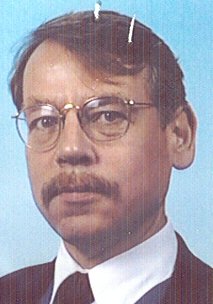Willem Boot, born in Zeist, the Netherlands, in 1947. Ph.D. from Leiden University. Professor of Japanese and Korean Language and Literature at Leiden University
Fellow (1 September 1999 – 30 June 2000)
My research project at NIAS was concerned with the intellectual history of the Edo Period (1600-1868). My treatment of this subject is innovative in two respects: first in that activities in the field of literature and in the field of discursive, “philosophical” thought, that are usually regarded as the subjects of different disciplines, are treated as one; and secondly in that the Confucian studies of the Sinologists (Kangakusha) and the studies of the national corpus by the so-called Kokugaskusha are treated as closely related fields of intellectual endeavour.
In my view, Japanese intellectuals of the Edo Period took their standards, preoccupations, interests, and methodology from China. To them, intellectuals were people who knew the Chinese Classics, had internalised certain norms of behaviour that were thought to be expressed in the Classics, wrote poetry, were willing to teach, and were willing to help govern the country if called upon. These various activities to them were one organic whole; to break them up, and define one such intellectual as a poet, another as a philosopher, and a third as an administrator belies the fundamental unity posited by the ideology.
On the basis of such sources as collective biographies, histories of Japanese poetry, and poetic anthologies it is possible to reconstruct this intellectual movement in its full amplitude and original unity.
Differences in social circumstances between China and Japan made it, of course, impossible to adopt the Chinese intellectual culture completely. The question, whether this should be done, and to what extent it would be possible, was much debated. Arguments in favour of total rejection or of total adoption were extremely rare. What one sees in practice is a most interesting gamut of adaptations and compromises. What one also sees, is that over the years the basic “Confucian” assumptions spread, and that also those intellectuals who specialised in Japanese Studies, the kokugakusha, adopted Chinese norms and attempted to outperform China on Chinese criteria.
